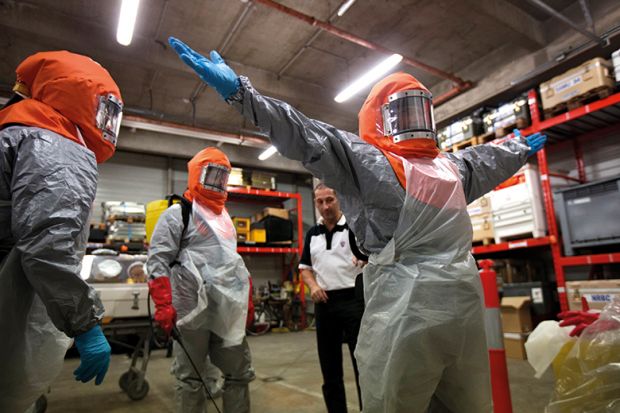A £10 million vaccine development hub will be established at Imperial College London to help UK scientists respond more quickly to outbreaks of emerging infectious diseases caused by the likes of the Ebola and Zika viruses.
The Future Vaccine Manufacturing Hub will look to design a system that can produce tens of thousands of doses of a vaccine within weeks of a new threat being identified.
It will involve four UK universities and will work with partners in India, Uganda, China, Bangladesh and Vietnam.
Robin Shattock, chair in mucosal infection and immunity at Imperial and the project leader, said that the hub offered a “unique opportunity” to enable UK researchers to rapidly respond to emerging epidemics.
Funding for the project has been awarded by the Engineering and Physical Sciences Research Council on behalf of the Department of Health as part of its allocation for overseas development. It will involve the universities of Bristol, Cambridge and Nottingham, and Cranfield University, as well as three research institutes – the NHS Clinical Biotechnology Centre, the Centre for Process Innovation and the National Institute for Biological Standards and Control.
The centre will also look to address challenges associated with the storage and distribution of vaccines in developing countries, and to find new ways of making vaccines that are more efficient and cost-effective, to help developing countries meet their own vaccine needs.
Professor Shattock said: “We have got a strong interest in developing vaccines against neglected diseases and improving global health. While the large pharmaceutical industry is very important for developing new vaccines, there is often not a commercial case for some of the targets because there may not be a large enough market.”
He added that the hub would tackle the “low-hanging fruit” of developing innovative processes to manufacture existing vaccines, as well as investigating completely new ways of creating vaccines.
Existing vaccine manufacture processes tend to be very large industrial plants that are often built for global markets. “We are trying to scale it down so that you could manufacture vaccines on a modular scale. You could perhaps set up a facility for just national or regional needs rather than global needs,” he said.
About 20 scientists are working on the hub’s projects at Imperial, according to Professor Shattock.




